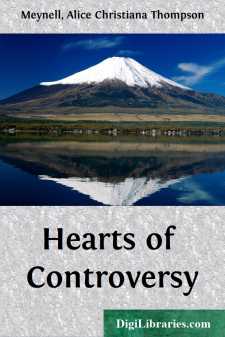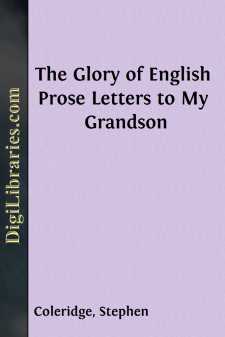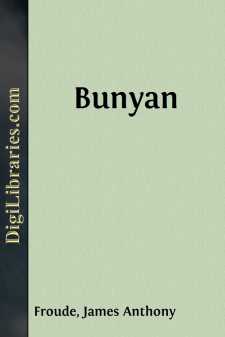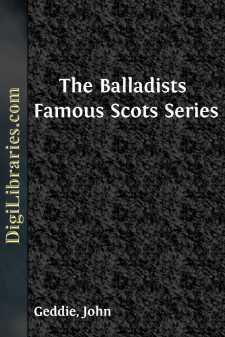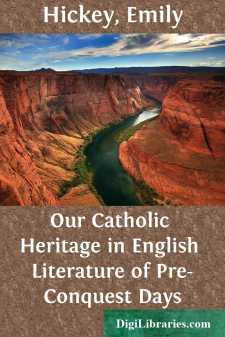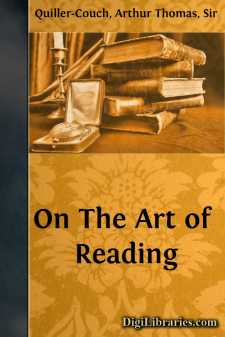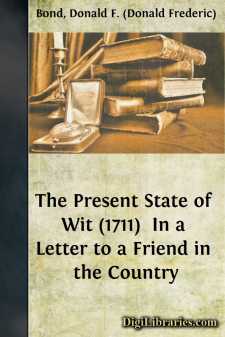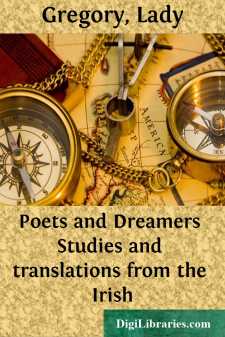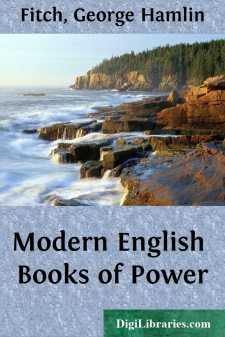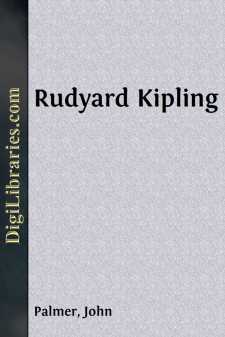Literary Criticism
- American 18
- Ancient and Classical 3
- Asian 1
- Australian & Oceanian 1
- Books & Reading 8
- Caribbean & Latin American 2
- Drama 2
- English, Irish, Scottish, Welsh
- European 7
- General 37
- Horror 1
- Humor 2
- Jewish 2
- Medieval 2
- Middle Eastern 3
- Poetry 7
- Renaissance 6
- Russian & Former Soviet Union 1
- Shakespeare 27
English, Irish, Scottish, Welsh Books
Sort by:
SOME THOUGHTS OF A READER OF TENNYSON Fifty years after Tennyson’s birth he was saluted a great poet by that unanimous acclamation which includes mere clamour. Fifty further years, and his centenary was marked by a new detraction. It is sometimes difficult to distinguish the obscure but not unmajestic law of change from the sorry custom of reaction. Change hastes not and rests not, reaction...
more...
1 My Dear Antony,The letters which I wrote "On the world about you" having shown you that throughout all the universe, from the blazing orbs in infinite space to the tiny muscles of an insect's wing, perfect design is everywhere manifest, I hope and trust that you will never believe that so magnificent a process and order can be without a Mind of which it is the visible expression. The...
more...
EARLY LIFE. 'I was of a low and inconsiderable generation, my father's house being of that rank that is meanest and most despised of all families in the land.' 'I never went to school, to Aristotle or Plato, but was brought up in my father's house in a very mean condition, among a company of poor countrymen.' 'Nevertheless, I bless God that by this door He brought me...
more...
by:
John Geddie
CHAPTER I BALLAD CHARACTERISTICS'Layés that in harpingBen y-found of ferli thing;Sum beth of wer, and sum of wo,Sum of joye and mirthe also;And sum of treacherie and gile;Of old aventours that fell while;And sum of bourdes and ribaudy;And many ther beth of faëry,—Of all things that men seth;Maist o' love forsoth they beth.'The Lay of the Ash. Who would set forth to explore the realm...
more...
by:
Emily Hickey
The beginnings of Literature in England. Two poets of the best period of our old poetry, Caedmon and Cynewulf. The language they wrote in. The monastery at Whitby. The story of Caedmon's gift of song.How many of us I wonder, realise in anything like its full extent the beauty and the glory of our Catholic heritage. Do we think how the Great Mother, the keeper of truth, the guardian of beauty, the...
more...
LECTURE I INTRODUCTORY WEDNESDAY, OCTOBER 25, 1916 I In the third book of the "Ethics", and in the second chapter, Aristotle, dealing with certain actions which, though bad in themselves, admit of pity and forgiveness because they were committed involuntarily, through ignorance, instances 'the man who did not know a subject was forbidden, like Aeschylus with the Mysteries,' and...
more...
INTRODUCTION Gay's concern in his survey of The Present State of Wit is with the productions of wit which were circulating among the coffee-houses of 1711, specifically the large numbers of periodical essays which were perhaps the most distinctive kind of "wit" produced in the "four last years" of Queen Anne's reign. His little pamphlet makes no pretence at an analysis of true...
more...
by:
Lady Gregory
RAFTERY I. One winter afternoon as I sat by the fire in a ward of Gort Workhouse, I listened to two old women arguing about the merits of two rival poets they had seen and heard in their childhood. One old woman, who was from Kilchreest, said: 'Raftery hadn't a stim of sight; and he travelled the whole nation; and he was the best poet that ever was, and the best fiddler. It was always at my...
more...
Introduction My aim in this little book has been to give short sketches and estimates of the greatest modern English writers from Macaulay to Stevenson and Kipling. Omissions there are, but my effort has been to give the most characteristic writers a place and to try to stimulate the reader's interest in the man behind the book as well as in the best works of each author. Too much space is devoted...
more...
by:
John Palmer
I There is a tale of Mr Kipling which relates how Eustace Cleever, a celebrated novelist, came to the rooms of a young subaltern and his companions who were giving an account of themselves. Eustace Cleever was a literary man, and was greatly impressed when he learned that one of the company, who was under twenty-five and was called the Infant, had killed people somewhere in Burma. He was suddenly...
more...


